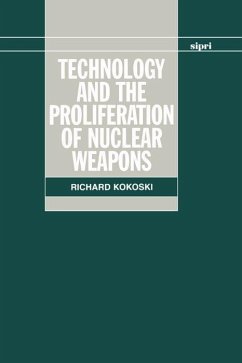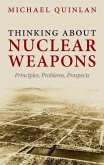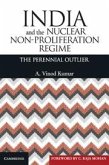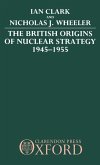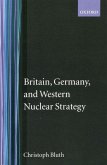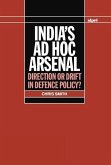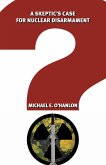The author focuses on the critical developments, technological in particular, which are currently posing a threat to the nuclear non-proliferation regime. Crucial technologies affecting nuclear weapon proliferation and their potential ramifications for the nuclear non-proliferation regimes as a whole are examined and potential policy options which could ameliorate or eliminate the resulting dangers are analysed and assessed. Developments and problems raised by the Iraqi and North Korean nuclear programmes receive special attention. In particular, recent efforts in strengthening export control regulations on nuclear and dual-use technology and equipment and in improving nuclear safeguards are described and their impact analysed. Of lasting relevance in the non-proliferation context, this book is of particular relevance in the light of the indefinite extension of the Non-Proliferation Treaty.
In this book Richard Kokoski examines the crucial technologies relevant for the production of fissile materials for nuclear weapons and the potential ramifications of the existence, spread and further development of these technologies for the nuclear non-proliferation regime. He analyses potential policy options which could help to ameliorate some of the resulting dangers for the NPT regime as a whole. The many issues raised by the nuclear weapon programmes in Iraq and North Korea receive special attention. The author describes the scope and state of development of the Iraqi nuclear weapon programme, as revealed by the IAEA inspections in the wake of the 1991 Persian Gulf War, and examines the challenges which this experience has posed to the non-proliferation regime. He then outlines and assesses IAEA safeguards and examines moves which could further enhance their effectiveness. His review of recent improvements to nuclear export controls, including those on dual-use items, is accompanied by suggestions for ways to further tighten these controls as well as help to prevent smuggling of fissile material.
In this book Richard Kokoski examines the crucial technologies relevant for the production of fissile materials for nuclear weapons and the potential ramifications of the existence, spread and further development of these technologies for the nuclear non-proliferation regime. He analyses potential policy options which could help to ameliorate some of the resulting dangers for the NPT regime as a whole. The many issues raised by the nuclear weapon programmes in Iraq and North Korea receive special attention. The author describes the scope and state of development of the Iraqi nuclear weapon programme, as revealed by the IAEA inspections in the wake of the 1991 Persian Gulf War, and examines the challenges which this experience has posed to the non-proliferation regime. He then outlines and assesses IAEA safeguards and examines moves which could further enhance their effectiveness. His review of recent improvements to nuclear export controls, including those on dual-use items, is accompanied by suggestions for ways to further tighten these controls as well as help to prevent smuggling of fissile material.
